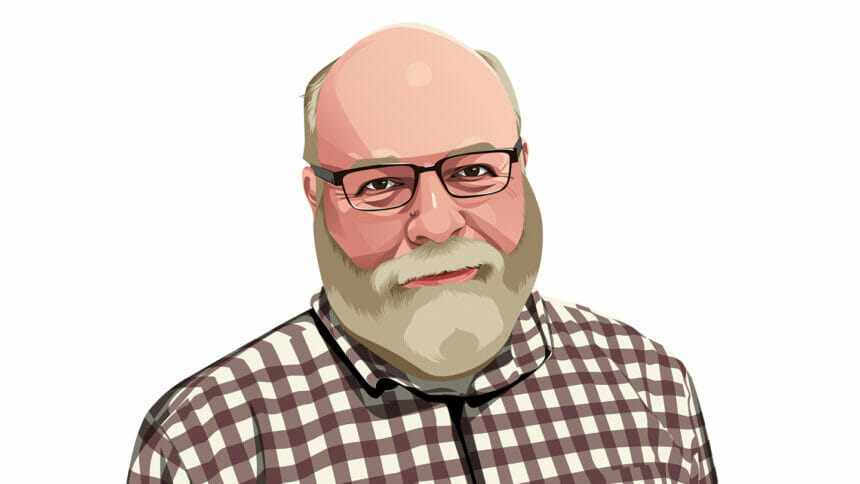For decades after his last ride, it rested on a sawhorse in a darkened corner of my father’s garage — his favorite Western saddle.
The leather was worn in the seat and where his thighs pressed against the horse, and the stirrups were scratched. Squint carefully, and you could still see him perched high, moving through an undulating sea of prairie grass toward an infinite horizon. Why did he keep it all those years, through multiple moves, when age and declining health had long prevented its use? Perhaps because it sat in silent testament to his deep love of horses, affirming a central identity formed since his youth. It provided solace as life began bucking beneath him, and irrevocably slipping away.
Unlike many less fortunate folks, he never had to liquidate his possessions or move to long-term care. But as we packed for his last big move, and he chose to finally give up his beloved saddle, a palpable melancholy settled in. Through his dejected reaction, I gained a better understanding of how the traumatic upheaval your new residents have already experienced probably shapes their attitudes and interactions.
I’ve been thinking about this a lot lately as I begin a transition of my own. Packing up my belongings has cut through the artifice of what I’ve valued to illuminate an uncomfortable truth. I’m shocked to realize how tightly the possessions that surround me are entangled in my own sense of significance, and how strenuously I, too, resist letting them go.
Books are my closest equivalent to dad’s saddle. I cling to them, horde them, treasure them. They’re central to my perceived worth and scream from their shelves that I’m smart, educated and the kind of person who reads large volumes with tiny print. If I lost them, wouldn’t I lose a big part of myself?
Ponderings like these offer insights into the mind of a newly arrived resident. That person drifting without roots or identity after being forced to give up everything precious she’s accrued in a lifetime — possessions that defined her, objects that inspired, knick-knacks with a trove of priceless memories attached — to embark on a journey long dreaded.
She desperately needs your patience, your empathy and most of all your uncanny ability to help her see that hope and meaning are still possible — and that losing her saddle doesn’t mean losing her life.






